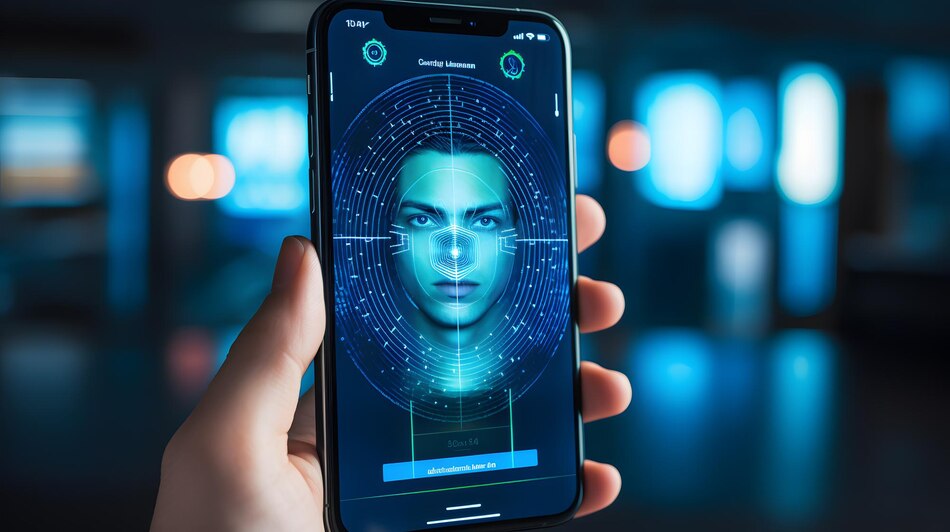Face recognition technology has become a powerful tool that could change our lives in a world that is becoming more digital and linked. This paper will examine how this technology improves safety, makes daily jobs easier and boosts security.
At the same time we’ll discuss the privacy issues, biases and moral problems that have started a global discussion. Regulatory changes and scientific advances will also be examined giving a full picture of this game changing technology.
The Advantages Of Facial Recognition Technology
Better Security
Face recognition technology has completely changed the way security works. It provides a strong level of security by using unique facial traits to identify people. It lets you control who can get into closed places safely protecting private data and essential equipment. Face recognition is being used by more and more well known businesses and groups to strengthen security. This technology has shown that it can keep people from getting in without permission and stop identity theft.
Easy Living In Everyday Life
The ability to recognize faces has made our daily lives easier. This technology makes things easier like opening phones and faster airport check ins. What if you didn’t need a wallet or a real key anymore Your face could be the key to your digital world. It changes people’s lives today because it is much easier and faster than the old ways.
Possible Risks To Public Safety
Face recognition technology has been used by law enforcement to improve public safety. It helps stop crime by making it easy to find people in busy places or track down suspects. Many examples of this technology are used to find lost people and bring criminals to justice. There are worries but the possible benefits for society safety can’t be ignored.
Problems With Facial Recognition Technology
Privacy Issues
People are apprehensive about the fast growth of facial recognition which could invade their privacy. They worry that constant monitoring will put their personal lives at risk as cams become more common. Recent data breaches and cases of illegal access make people wonder how safe it is to store facial data. Finding the right mix between privacy and security is still much work.
Discrimination And Biases
Even systems that recognize faces can be biased. These beliefs can cause unfair labeling and harassment which hurt minority groups more than others. Face recognition mistakes based on race or gender have caused anger and calls for someone to be held responsible. Eliminating biases and ensuring that technology is used reasonably is always hard.
Ethical Problems
Photo recognition technology brings up many social problems. There are questions about consent and consent. People’s faces are often recorded without their knowledge or permission. There are moral problems with using face recognition for tracking and monitoring which raises important questions about the limits of surveillance in a free society.
Regulatory Measures And The Future
Government Regulations
Governments worldwide are regulating face recognition technology. These rules balance its benefits with the need to protect civil rights. Legal systems are being established to control its use and openness permission and responsibility are needed. Government leaders are working hard to solve the complicated problems this technology causes.
Technological Advancements
Thanks to the work of researchers and tech leaders, face recognition technology is always getting better. There are efforts to improve accuracy, lower bias and make systems better. As technology improves it can solve many problems with how it is used now. New advances in face recognition point to a future where the benefits can be enjoyed without risking privacy and fairness.
Is Facial Recognition Technology Entirely Accurate?
Face recognition technology works very well but it could be better. Its performance depends on many factors such as data quality and methods. The accuracy rate is very good when everything is perfect but it can be affected by lighting picture quality and the variety of people it sees. Biases in algorithms can also cause mistakes which is a problem that needs to be fixed constantly.
Can Facial Recognition Be Hacked Or Misused?
Like any other technology facial recognition can be hacked or used improperly if it is not properly protected. There have been instances of data leaks and people getting in without permission. On the other hand, strong security methods and strict rules can greatly reduce the risks.
Conclusion
Regarding pros and cons, facial recognition technology is constantly changing. It makes things safer, easier and more secure but also makes people very worried about privacy bias and ethics. Regulations and technological progress are needed to maximize face recognition benefits while also dealing with its problems. This will ensure a future where it helps society without violating fundamental rights.
